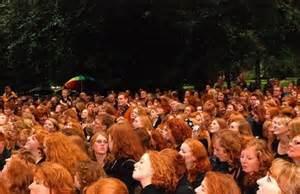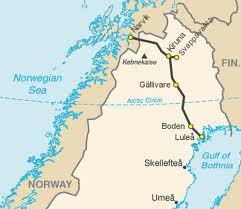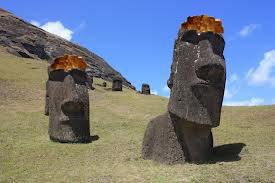
Hello!
We posted a week or two ago about the great scrolls found in a Canister in Norway by Robert Hamstrangler, Norway’s greatest anthropologist and hot water blower upper that told the story of Ginger Volk.
Here is Part 1!

THE GINGER SCROLLS PART ONE – THE DEPARTURE
Note; The following translation of the Ginger Scrolls is based upon the original work of Professor Tor Legolam, Professor of Nonsense at Bergen University. The Scrolls were discovered in a canister by a man coated in reindeer spittle in October 1927.
A gerbil was also found in this canister.
In all over 1,000 pages was discovered. The Ghingar language employed 34 vowels, 212 consonants and could locate a cedilla over the letter A after it followed GH, at no less than 37 separate angles of elevation.
Gingerfightback’s editorial board has decided to concentrate on the main narrative contained in the Scrolls.
Part 1 is known as “The Departure” and concerns itself with the departure of the final few hundred Ghingars from their beloved homeland and the journey towards their new lands west and south.
It is impossible to establish with true veracity where the Ghingars finally alighted, but using DNA tests from ginger people in Southern France and examining the contents of mummified Ghingars discovered in Southern France in the late nineteenth century it would be fair to assume that they landed in Southern France.
This is confirmed in Part 3 of the Scrolls entitled “We Landed in Southern France”. A few landed in bonny Scotland due to the accelerated melting of their lard hair boats.
Professor Legolam’s favoured textual translation method is based upon the Albensian system of translation of the ancient texts, perfected by Cardinal Pietro Albensian in the late13th century.
The basic metronomic approach to translation in this manner can be found in the “Digitales Summa Orbis” written by Albensian and his brother Ted the Knife in 1287.
Recent studies of the Albensian techniques point to the fact that the Cardinal, or Ted the Knife were probably dyslexic and so given all this carry on what you are about to read is probably not very accurate at all and hardly worth the effort. Still now that you have read this far you may as well carry on for a bit and find out a little of the history of ginger folk.
Enjoy!
** Poetry was an intrinsic element of the Ghingar culture as they found expressing themselves in verse to be a far more effective way of communicating in the perishing cold. The poems recited in the Scrolls are an attempt by the author to reflect the mood, tenor and verve of the times. For further reading we would suggest the following;
Notes on Ginghar Poetry and Polemics – Douglas Sandwell – OUP (445 pages with some nice join the dots pictures for when you get bored and also a cut out and keep Ludo set)
The Ghingars –Battling the Cedilla – Douglas Sandwell – OUP (657 Pages with a cut out and keep ice berg and waterfall)
More Ghingars – Please Somebody Buy It! – Douglas Sandwell – OUP (1,234 Pages with a built in sleeping bag and feathery pillow).

The Ginger Scrolls Part of Part One – The Departure
Of my name there is no cause for you to know. I am nameless but not silent. For these tales must be set down, their words appropriated from the mouths of others and our tragedy told. These words will not be tethered to this script dear friend. No! They are freeborn and will fly around this earth and the great bright skies in the North will act as permanent testimony of our suffering yet passion for life untrammeled by that suffering.
Carried by the beating wings of the great Gull, Exeretheon, the Night Flyer our tales will be told and recalled for all time.

Words of passion, wisdom, hope and of love for our homeland and of our people. Words can be the heartbeat between two lovers, the blood that flows between kin or the bile that proposes enmity between men.
We, the Ghingar always value words as tools of joy and hope. We would use them to sing, tell tales and even dance amongst them on our nights of festivals, before the Sun departed us for the other realms of the great heavens where she bade other people light and sustenance.
Our words to her, warm to the touch and comforting to the feel, bade her speedy return but offered her safe passage to her new home and the peoples who would bathe in her rays and affection.
The Ghingar people. Taken from our homelands by those evil pillars of famine and fear that forced us to roam amongst mortal man and his surly ways to ensure our kin hath future enough. We shall return to our home when the stars in the heavens bid it so.
The stars are not hung in the sky by your Gods or our Gods for amusement. They are there to guide, to inspire and to allow us to dream of other worlds.
But truth, dear friend we know not when that glorious day beckons us North once more and to the comfort of the shores and the ice that we called our Home. We people are from far North, distant from your own tribulations and vapours. A world so barren and untouched by the guilt and pleasures of other men that it will remain lost to all until we return.
Hard as life was and as dark as it was, those lands, icy, cold, fearful of strangers and a little bit weird – (translation note; the original Ghingar word here is Maleanstoricbmisltistr – which literally translates as “those who do not always allow the ice to melt before they drink it” – we think that weird is a close enough approximation of that term.) – But they were our lands. Our home.
Malady for loss is something all Ghingars carry. We grieve.

For so long isolated from other groups we had learned to live in peace with each other.
A land of hope, benign gods, tuneful music and a world of smiles. That is why the outsiders gave them the name Ghingar, from the ancient Arctic Empire tongue of our kings meaning “Those who smile”.
But we are not a people to dwell in the past. Indeed our land was governed by only three laws. Not to kill. To always seek shelter from the sun. Never revisit the past with sad intention.
Only the dead were entitled to declare war upon another nation and only those given sanctuarial position were allowed to venture past the great Buttock of Truth, erected before memory began it is said, to protect our people from those with barbarous intent. No God we worshipped only the Sun, fearing its long absences in the cold winter months would hasten our demise,
“Hasten to me morning Sun
That I may bask in thy balmy rays
Hasten to me morning Sun
That I may enjoy the best of days
Do not leave so soon morning Sun
That I will have to endure
Darkness and the stalk of night
And deaths tainted allure”
Ours was a simple world, made good by kindness, potatoes and a lack of foot disorders.
Part 2 to follow……….
